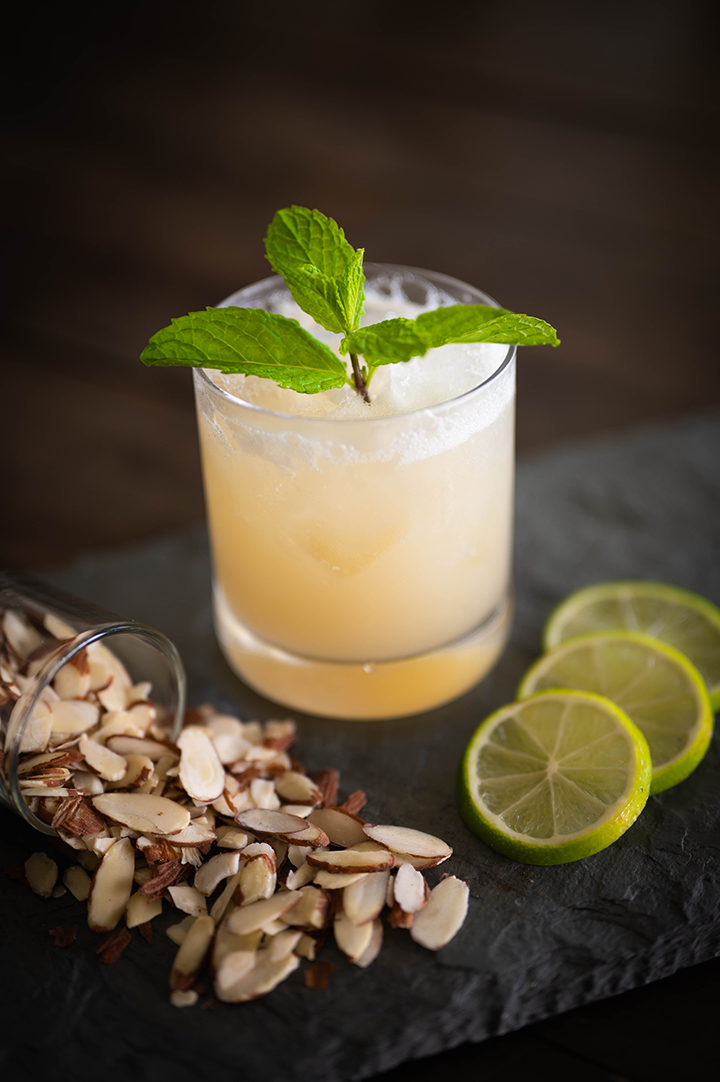Just because Jack Frost has a frigid grip ahold many areas of the world, doesn’t mean you can’t sip your way to a bit of sunshine and warmth.
Cocktails have long helped aficionados transport themselves to different times and locales.
“A cocktail is a postcard from a place and time–a martini could take them to the 1920s in an art deco bar in London, a Manhattan can take them to 19th century New York, a Sazerac could take them to New Orleans, and a mojito could take them to the Caribbean,” said Jacob Briars Bacardi) during Tales of the Cocktail 2021. “Cocktails have always been to some extent an escapist opportunity—an escape from the grind of the day to day— but they also give you the ability to travel without ever leaving your seat.”
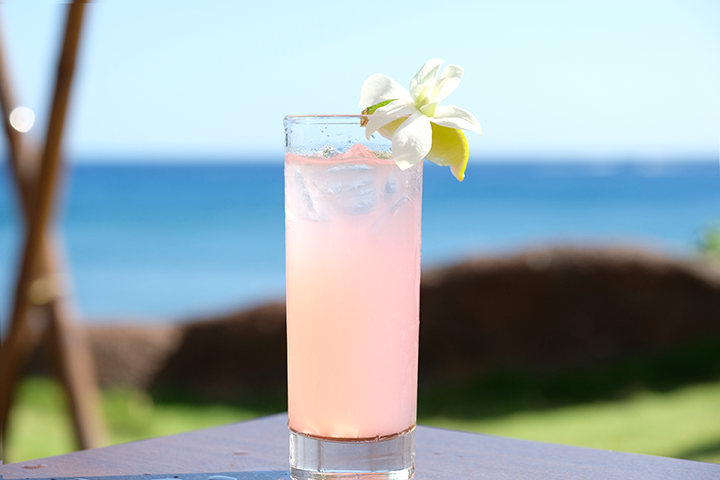
Japengo’s Watermelon Soju (Collins) featuring Ty-ku soju, watermelon liquor, fresh lime juice, and coconut water. Photo courtesy Hyatt Regency Maui Resort and Spa
And nothing says “escape” quite like a tropical cocktail.
“Tropical drinks began as an homage to the places soldiers were seeing...blending multiple rums, citrus, baking spice, and sweeteners into standard recipes,” says Carl Anderson with Sugar Beach Events on Maui. “Tropical drinks (like Pina Coladas, Daiquiris, Mai Tais) have the ability to evoke an ‘I’m at the beach’ feeling.”
Rum takes the cake
“More often than not, rum is the primary spirit in tropical drinks,” Anderson says. “Due to the many styles of rum, it can either be a bold flavor or hang out in the background, and that flexibility makes it a great option for tropical drinks.”
However, tropical cocktails can take on completely different personalities depending on the style and type of rum that is used. White rum, for example, has very little flavor, so it’s perfect for daquiris and Cuba Libres where the rum should be more subtle and the mixers should be the star, but on the other side of the coin a dark rum provides the perfect molasses flavor for a Mai Tai or rum punch. “Often, several different styles of rum are used in any given cocktail,” says Anderson. Other ingredients that shine through in tropical cocktails:
“Bright juices like lime, pineapple, and passionfruit are very common in tropical drinks—that keeps the drink light and refreshing. Coconut in various forms is also a heavy hitter in tropical cocktails due to its heavy aromatics and quintessential beach flavor.”
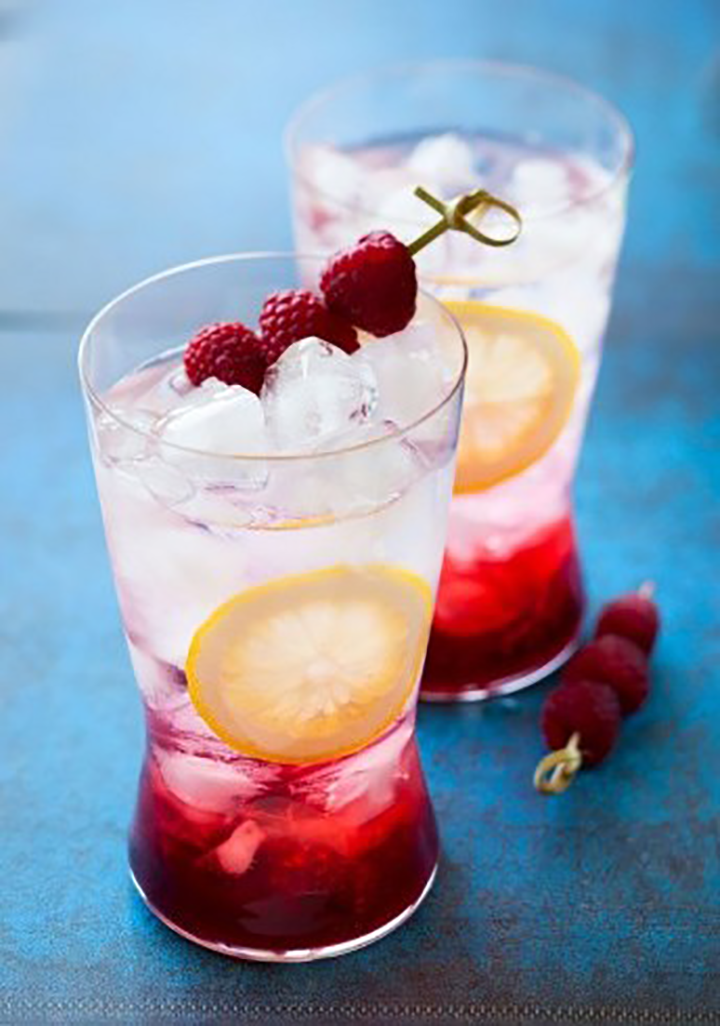
Berry Spa Sipper featuring raspberry puree, grapefruit juice, cranberry juice, soda water, sliced cucumber, and fresh mint. Photo courtesy Oregon Fruit Products
With so many tropical drinks utilizing the same spirit, and many of the same ingredients, you may think there would be a lot of overlap between them, but each offers something unique.
“I have to say it is easier today than ever with all of the various iterations of flavors available; both with spirits as well as the other ingredients,” Anderson says. “It’s like walking into Home Depot and having to build a house different than other people using any of the items there. No problem. I am fortunate to livein a time of culinary innovation and the availability of products that heretofore were unobtainable.”
Sweet escape
Tropical drinks have gone through a bit of an evolution over the years, thanks in no small part to the evolving palates of consumers.
“For a long time, these cocktails were unbalanced and too sweet, but over the years, tropical drinks have transformed into more balanced beverages that highlight the rum rather than try to cover it up,” Anderson says. “Bartending has become more like being a baker where you carefully measure in fractions of an ounce to ensure precision instead of just eyeballing the ingredients and making it sweet rather than balanced.
“Instead of tropical/tiki cocktails being something you would haphazardly serve a cocktail neophyte because they are merely a sweet mix of fruit juice with a little rum, a Jet Pilot is treated with as much deference as a gin martini and made with as much care for an audience that knows the difference.”
The growing importance of sustainability is also having an impact on tropical drinks as more bartenders are utilizing “citrus stocks,” rather than whole fruits, in order to cut down on fruit waste. So, as winter continues to taunt us, indulge in one of these tropical drinks to help transport you to warmer locations.
“Before you even pour the first ounce of alcohol, tropical drinks offer escapism visually with their pineapple mugs, bouquets of mint, and flaming fruit,” says Anderson, “then the flavors of unique ingredients such as orgeat, guava, and passionfruit propel you there in your mind after your first sip. They are cool, bright, and refreshing; which is exactly what a proper tropical, beachy drink should be.”
Cheers!
Mai Tai
Photo and recipe courtesy Carl Anderson, Sugar Beach Events
Ingredients
Method
Combine all ingredients in a mixing tin with ice. Shake to combine. Strain over fresh ice in a highball glass.
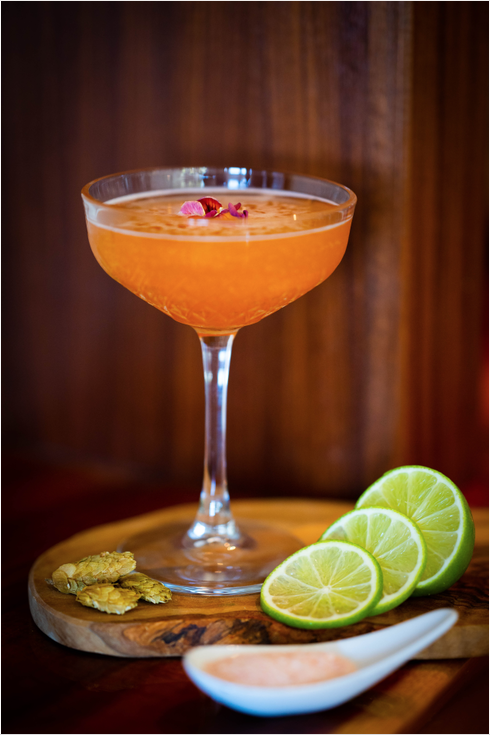
Alice in Hulaland
Photo and recipe courtesy Carl Anderson, Sugar Beach Events
An original cocktail named after a renowned shop on the north shore of Maui
Ingredients
Method
Combine ingredients 1 through 6 in a mixing tin with ice. Shake to combine and chill. Strain into coupe glass. Top with IPA.
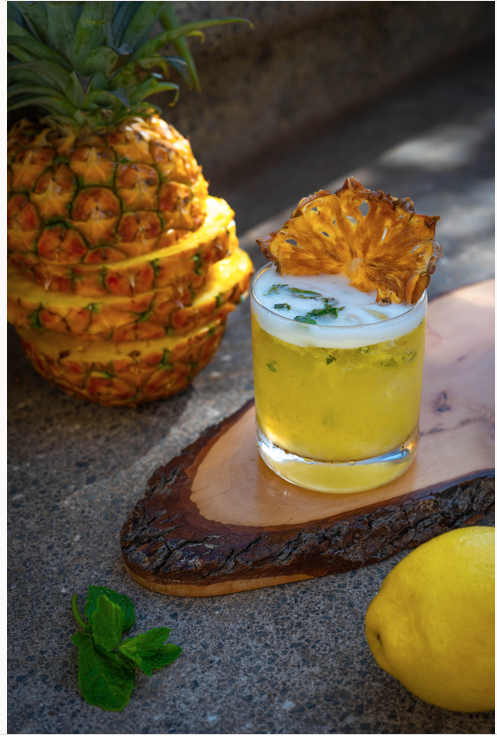
The Great Pretender
Photo and recipe courtesy Carl Anderson, Sugar Beach Events
Ingredients
Method
Muddle pineapple chunks with mint and pineapple juice in a mixing glass. Add the remaining ingredients and ice. Shake to combine. Pour into highball glass.


